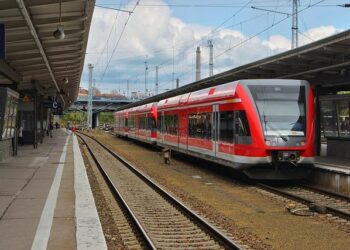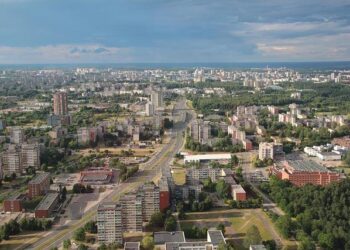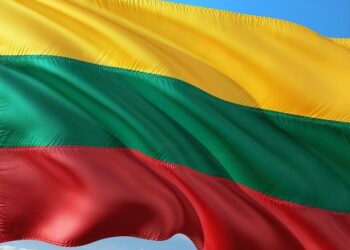Lithuania is positioning itself as South Korea’s swiftest and most efficient gateway to the European market, according to a recent report by The Korea Herald. As trade and investment ties between the two countries deepen, Lithuania’s strategic location, advanced logistics infrastructure, and pro-business environment are drawing increasing attention from Korean companies seeking faster access to Europe. This development highlights Lithuania’s growing role in facilitating smoother supply chains and expanding economic cooperation amid shifting global trade dynamics.
Lithuania Positions Itself as Strategic Entry Point for Korean Businesses Expanding into Europe
Lithuania’s strategic location at the crossroads of Northern and Eastern Europe offers unparalleled advantages for Korean companies aiming to establish or expand their footprint within the European market. Boasting a robust infrastructure network that connects key economic hubs across the continent, the nation has rapidly become a logistical powerhouse. Its competitive business environment, combined with streamlined customs procedures and digitalized administrative services, makes it an attractive destination for enterprises seeking speed and efficiency in supply chain management.
Moreover, Lithuania’s government actively supports foreign investors through tailored incentives and partnerships, ensuring seamless market entry and sustainable growth. Key factors that make Lithuania an ideal gateway for Korean businesses include:
- Advanced ICT infrastructure facilitating digital commerce and innovation
- Highly skilled multilingual workforce with expertise in technology and manufacturing
- Access to EU’s single market of over 450 million consumers
- Competitive tax policies and investment support schemes
- Efficient transport logistics including seaports, railways, and airports
| Advantage | Lithuania | Average in EU |
|---|---|---|
| Logistics Efficiency Index | 7.3 | 5.2 |
| Digital Economy Ranking | 4th | 12th |
| Corporate Tax Rate | 15% | 21% |
| English Proficiency | Very High | High |
Key Infrastructure Developments Boost Lithuania’s Appeal as a Logistics Hub for Korea
Lithuania’s strategic investments in modernizing its logistics infrastructure have significantly enhanced its position as a prime gateway for Korean businesses aiming to access European markets. The expansion of the Klaipńóda seaport, coupled with upgraded rail connections linking to major European transport corridors, has reduced transit times and increased cargo handling efficiency. Moreover, the development of state-of-the-art logistics parks near Vilnius and Kaunas offers Korean companies streamlined customs procedures and cutting-edge warehousing solutions, facilitating faster distribution across the continent.
Key elements driving this transformation include:
- Modernization of Klaipńóda port facilities with deeper berths for larger vessels
- Integration of Rail Baltica, connecting Lithuania to Western Europe via high-speed rail
- Implementation of digital customs systems reducing clearance time by 30%
- Development of eco-friendly logistics hubs supporting sustainable transport
| Infrastructure Project | Completion Year | Impact on Transit Time |
|---|---|---|
| Klaipńóda Port Expansion | 2023 | -20% |
| Rail Baltica Integration | 2024 | -35% |
| Customs Digitization | 2022 | -30% |
Recommendations for Korean Companies Seeking Efficient Market Access through Lithuania
Korean companies aiming to expand their footprint in the European market should leverage Lithuania’s strategic location and robust logistics infrastructure. With its proximity to Western European hubs and membership in the EU, Lithuania offers streamlined customs processes and access to the single market, enabling faster and more cost-effective distribution channels. Korean businesses are encouraged to collaborate with local logistics providers specializing in multimodal transport solutions, combining road, rail, and sea routes to optimize delivery times. Furthermore, establishing partnerships with Lithuanian innovation hubs and tech parks can facilitate smoother adaptation to local regulations and consumer preferences.
To maximize market entry efficiency, Korean firms should consider key local advantages highlighted below:
- Favorable tax incentives designed to attract foreign direct investment.
- Access to skilled workforce fluent in multiple European languages and well-versed in EU standards.
- Advanced IT infrastructure supporting digital trade and e-commerce expansion.
- Efficient customs handling with facilitated procedures for goods moving within the EU.
| Factor | Benefit for Korean Companies |
|---|---|
| Location | Direct access to EU markets with minimal transit delays |
| Tax Rates | Competitive corporate taxes encouraging reinvestment |
| Workforce | Multilingual experts reducing language barriers |
| Regulatory Environment | EU-compliant frameworks easing market integration |
Insights and Conclusions
As Lithuania positions itself as Korea’s fastest gateway to Europe, the strengthening ties between the two nations signal promising opportunities for trade, investment, and cultural exchange. With strategic infrastructure and a commitment to fostering bilateral cooperation, Lithuania aims to become a pivotal hub in Korea’s European ambitions. Continued collaboration and mutual engagement will be key to unlocking the full potential of this growing partnership in the years ahead.















